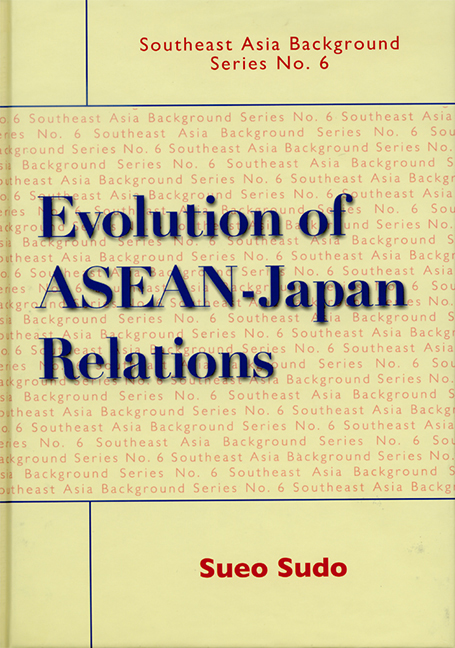Conclusions
Published online by Cambridge University Press: 21 October 2015
Summary
There have been three major stages in ASEAN-Japan relations, from institutionalization and substantive achievements to wider regionalism.
The Fukuda Doctrine was a turning point in ASEAN-Japan relations and the beginning of Japan's proactive diplomatic collaboration with ASEAN. Although the announcement was in one respect a response to the declining US presence in the region after America's defeat in the Vietnam War, Japanese governments since Prime Minister Fukuda have taken on a more political role in the region and challenged the then prevalent notion of “an economic giant but political pygmy”. In the process, the ASEAN connection has become a cornerstone of Japan's international position and the only official commitment promulgated by the Japanese government other than its most important relations with the United States.
In tandem with Fukuda's principle of peaceful regional coexistence, Japan has sought to strengthen ASEAN politically and economically, while using economic aid and assistance to lure Vietnam out of the Soviet orbit and moderate its intransigent behaviour. Thus, we can conclude that Japan's foreign policy has become more assertive and dynamic during the past three decades. The “ASEAN year”, the institutionalization of the Japan-ASEAN Foreign Ministers' Meeting in 1978, and the Takeshita and Hashimoto Doctrines are noteworthy examples. It should also be stressed that the announcement of the first successful Doctrine in Japanese foreign policy was due mainly to joint nemawashi (consultation) between Japan and ASEAN, thereby planting the seed for nurturing a networking mechanism for the first time. It is quite significant that the resulting Japan-Southeast Asian partnership has laid a foundation for the region's modus operandi, based upon the three elements of North-South regionalism, multiple regionalism and open regionalism. It is in this context that the consolidation of ASEAN-Japan relations is indeed one of the outstanding achievements of postwar Japanese diplomacy.
Quite visible were the joint efforts toward resolving the 1997–98 financial crisis; between 1997 and 2000, proposals for financial cooperation within East Asia came full circle.
- Type
- Chapter
- Information
- Evolution of ASEAN-Japan Relations , pp. 61 - 64Publisher: ISEAS–Yusof Ishak InstitutePrint publication year: 2005



